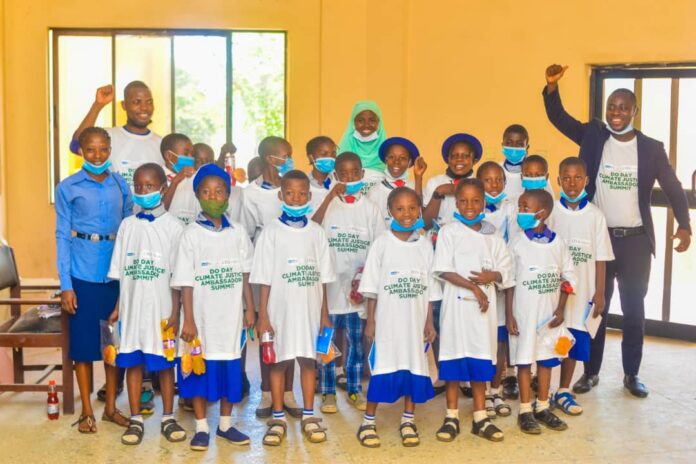There is no gainsaying the fact that human-induced climate change continues to cause huge disruption in nature, leading to catastrophic effects on our planet and wellbeing. The dire consequences of global climate crisis such as intense heat waves, droughts, floods and other forms of extreme weather conditions are happening so fast and exposing millions of vulnerable people around the world to food and water insecurity.
In its latest assessment report published on 28 February, 2022, the Intergovernmental Panel on Climate Change (IPCC), warned that any further delay in global action on adaptation and mitigation would miss the closing window of opportunity to secure a liveable and sustainable future for all, hence, the need for the world to take collective and urgent actions to adapt to climate change and reduce its risks.
Consequently, pushing for climate justice should be seen as a critical responsibility of everybody including young people in order to ensure that we all can be guaranteed a safer planet to live in. This perhaps explains why a non-governmental organization, Webfala Digital Skills for all Initiative, on Thursday, organised a Climate Justice Summit in Ilorin, the Kwara State capital, to educate secondary school students on the consequences of global climate crisis and call for accelerated actions to curb its attendant consequences.
Held at the auditorium basement of the University of Ilorin, the summit was sponsored by The Do School, Germany as part of its efforts to drive global positive change. Different speakers at the summit took turns to educate the students on the causes of climate change, its effects and actions to be taken to curb the menace.
In his lecture, a climate justice activist and delegate to the COP 26 held last November in Glasgow, Scotland, Abideen Olasupo, warned that the drastic effects of climate change may soon cause the earth to be unsafe for humans and animals to live in.
The climate change activist therefore noted that in line with Goal 13 of the United Nations Sustainable Development Goals (SDGs), urgent actions must be taken in due course to combat climate change and its attendant effects, which he said, pose great danger to human wellbeing.
He urged the students to take actions that promote a friendly ecosystem and to also continue to raise awareness on climate change among their colleagues, friends and family members.
“To tackle climate change, we must stop deforestation and embrace sustainable afforestation. Let us tell our people at home to stop cutting down trees to make firewood. It is a bad habit that must be stopped as it poses a threat to our environment,” Olasupo added.
On her part, Zainab Yaqub who is a doctoral student of Chemical Engineering at the University of Johannesburg, South Africa, explained that the large amount of carbon dioxide humans put into the air through vehicles, power plants, telecommunication masts, airplanes, factories, among others, causes damage to the environment.
She highlighted the effects of climate change to include flooding, wildfires, intense droughts, food and water insecurity, declining biodiversity, melting polar ice, catastrophic storms and other forms of extreme weather conditions.
Speaking on actions that can be taken to curb the negative impacts of the climate crisis in our local communities, Zainab, whose research work focuses on conversion of waste-to-energy technologies, called for massive reduction in greenhouse gas emissions, recycling of waste products and creation of green spaces through planting of trees and flowers. According to her, trees will absorb the carbon dioxide released into the atmosphere through human activities and convert it into oxygen.
Earlier in her welcome address, the Founder/Executive Director of Webfala Digital Skills for all Initiative, Nafisat Bakare, said “the Climate Justice Summit was aimed at raising consciousness towards developing environmentally friendly characters among the young adults, creating the ripple effect for the creation of quality life and environment
“At the end of the training, the school students will be certified as Climate Justice Ambassadors and become members of a worldwide network of committed children taking actions to combat climate change.
“As climate justice ambassadors, the students will create awareness about climate issues among their colleagues, peers and family members, and will also implement actions to mitigate the effect of the climate crisis in their various communities.”






















